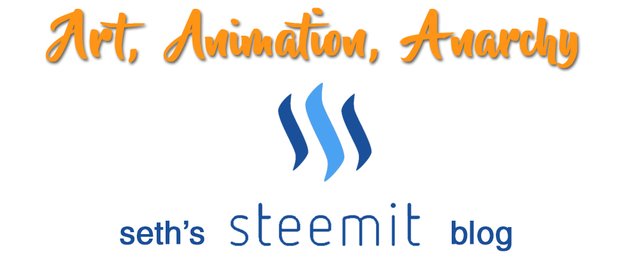You may call all it controlled chaos, cultivated disorder, or refined disarray. I think the best made-up term for this method is Polished Pandemonium. Whatever you want to call it, it's my new favourite way to make art.
Beginning With Disorder
I start from a place of chaos or disorder, then I refine or rein in that chaos.
Let me give you an example:
I'm sure many of you have heard of blind portraits. I bet a few of you had to do them in a grade school art class. For anyone unfamiliar, it's very simple: You look at a person and draw them without ever looking at your paper.
The results will usually look something like this:
I would call that a pretty chaotic starting point, wouldn't you?
Polishing the Pandemonium
For my chaotic starting point, I created a blind self-portrait by looking at my cell phone camera while drawing. The next step was to get it under control. I refined each line to make it look like every single stroke was intentional. The result is a bizarre Picasso-esque portrait:
In the future, I'd like to take this process further. Maybe throw in some colour.
Other Applications
The blind portrait isn't the only way I've utilized controlled chaos. My newest painting, Cosmic Disco, which I made a post about yesterday, began with a canvas covered in random smears and spatters. Here it is from start to finish:

There are endless possible ways to apply this method of art-making.
Why Do I Love This So Much?
There's a lot of beauty in chaos. Beginning a piece with something loose and haphazard creates gorgeous mistakes and surprises that I never could have come up with myself using careful planning.
But I don't like to leave it there. Art should reflect something of the artist. The relaxed disarray of the first steps does not have anything of me in it. It's merely an accident of nature. So I like to take control of that beautiful chaos and make it my own.
I believe that this way I end up with art that retains the erratic charm of disorder as well as the humanity of the artist.
Let me know what you all think!
~Seth

IMAGE SOURCES:
- Blind Portrait Examples (edited and re-uploaded by me)
Any uncredited images are of my own making.
great post!
Downvoting a post can decrease pending rewards and make it less visible. Common reasons:
Submit
Thanks :)
Downvoting a post can decrease pending rewards and make it less visible. Common reasons:
Submit
I forgot about those memory drawings. Those were unusual exercises, we also had to do a upside down drawing of a model which was sorta in that category imo.
Downvoting a post can decrease pending rewards and make it less visible. Common reasons:
Submit
Upside down drawings are a very difficult and useful exercise. They force you to really look at what you're seeing for what it is, rather than letting your mind's eye get in the way causing you to draw what you think you see.
Downvoting a post can decrease pending rewards and make it less visible. Common reasons:
Submit